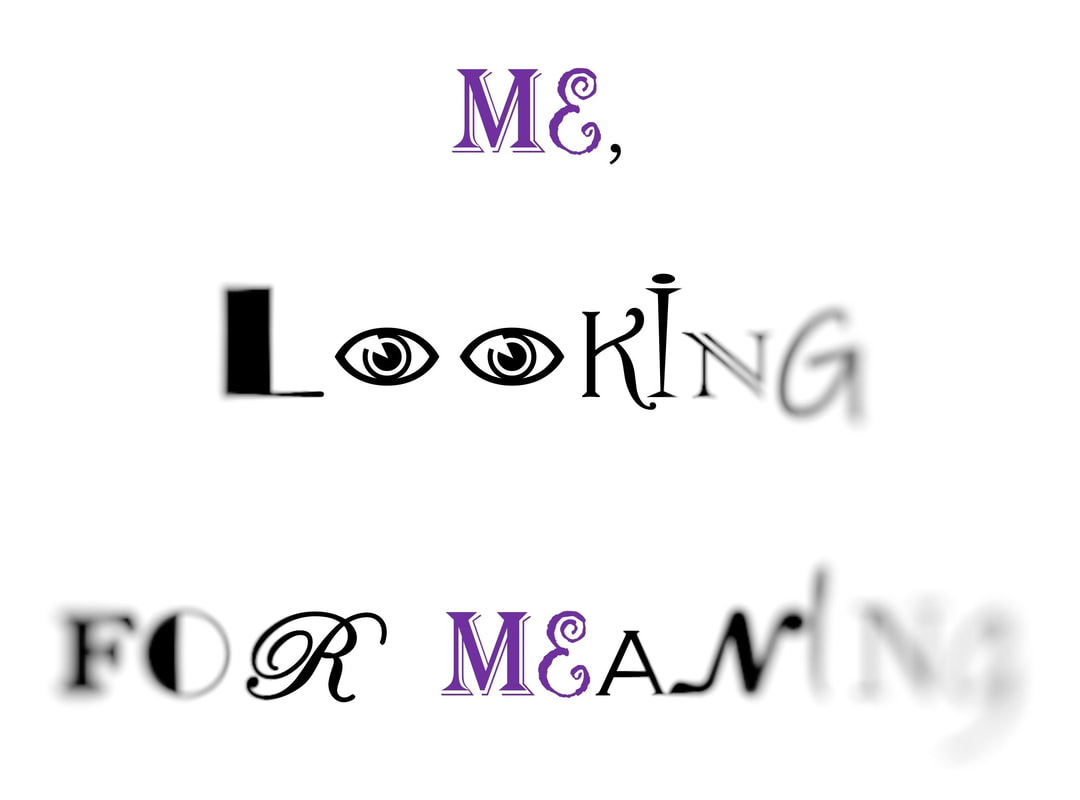Meaning-Seeking vs. Meaning-Making
PAGE IN PROGRESS
What you see here is a page of my hypertext book Me, Looking for Meaning. Initially empty, it will slowly be filled with thoughts, notes, and quotes. One day, I will use them to write a coherent entry, similar to these completed pages. See this post to better understand my creative process. Thank you for your interest and patience! :)
What you see here is a page of my hypertext book Me, Looking for Meaning. Initially empty, it will slowly be filled with thoughts, notes, and quotes. One day, I will use them to write a coherent entry, similar to these completed pages. See this post to better understand my creative process. Thank you for your interest and patience! :)
Although we don't think about meanings (especially in routine situations), we constantly look for them. In other words, we need to understand what objects we encounter are and how to act around them.
Human beings spend their lives searching for meaning(s). In the simplest terms, we want to know what objects we experience are in order to know how to act. From the evolutionary perspective, this constant quest for meanings helps us survive. On the other hand, it goes beyond the simple urge to satisfy basic human needs for safety, nutrition and procreation.
Any person's actions, no matter how much they contradict your values and worldview, can be understood as attempts to find meaning.
We all look for meaning. We want our life to have an explanation, goal and order. If the order of our universe is in danger, it must be supported and restored (system justification, confirmation bias, just world bias, rationalization).
If you listen to children, you will hear that they constantly create explanation for things they obverse and experience. They are making sense of the world. These meanings may seem funny and outlandish to grownups. But if adults increase their self-awareness, they will notice that they create meanings themselves all the time and that one person’s meanings can easily seem funny and outlandish to another person because meanings we create depend on our individual circumstances.
Fear of meaninglessness can be explained by existential psychotherapy.
SOURCES:
Yalom, I.D. (1980). Existential Psychotherapy. Basic Books.
About this project: Start page
Human beings spend their lives searching for meaning(s). In the simplest terms, we want to know what objects we experience are in order to know how to act. From the evolutionary perspective, this constant quest for meanings helps us survive. On the other hand, it goes beyond the simple urge to satisfy basic human needs for safety, nutrition and procreation.
Any person's actions, no matter how much they contradict your values and worldview, can be understood as attempts to find meaning.
We all look for meaning. We want our life to have an explanation, goal and order. If the order of our universe is in danger, it must be supported and restored (system justification, confirmation bias, just world bias, rationalization).
If you listen to children, you will hear that they constantly create explanation for things they obverse and experience. They are making sense of the world. These meanings may seem funny and outlandish to grownups. But if adults increase their self-awareness, they will notice that they create meanings themselves all the time and that one person’s meanings can easily seem funny and outlandish to another person because meanings we create depend on our individual circumstances.
Fear of meaninglessness can be explained by existential psychotherapy.
SOURCES:
Yalom, I.D. (1980). Existential Psychotherapy. Basic Books.
About this project: Start page
